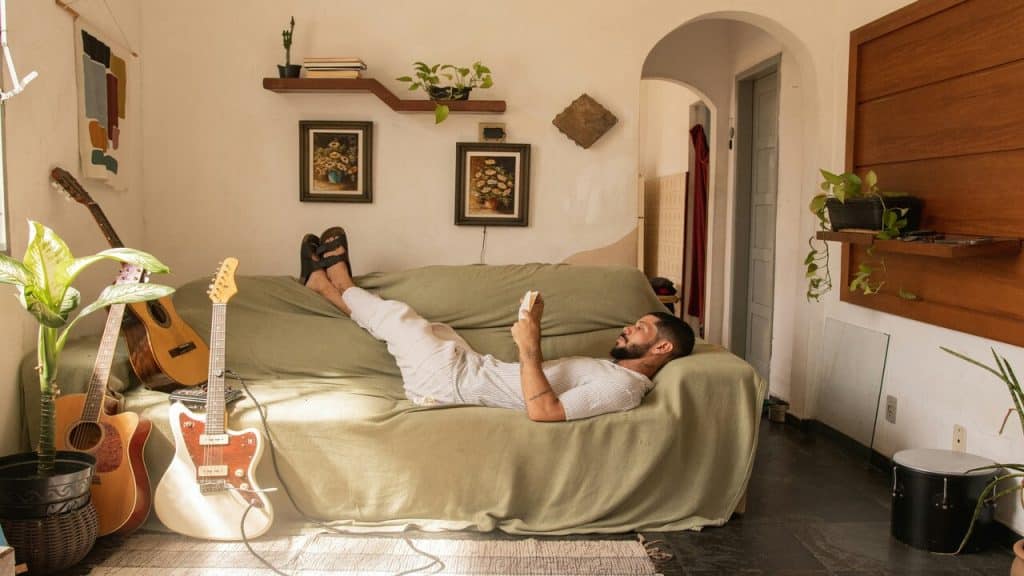
Your home isn’t just where you rest–it’s where your nervous system resets. But for many people, home is quietly chaotic. Clutter piles up. Screens buzz all day. Routines blur into each other. The result? You never quite feel like you’ve exhaled.
Fortunately, you don’t need a full renovation or a weekend retreat to feel better. You just need better habits. The kind that cue your body to downshift, quiet your thoughts, and give you the space to mentally return to yourself. Here are 17 habits that will help your home feel like a true refuge again.
1. Make Your Bed–But Do It Slowly

Making your bed is a classic for a reason. But instead of rushing through it, treat it like a ritual. Smooth the sheets, fluff the pillows, and actually take pride in how it looks. When you start your day with a small act of order, it signals to your brain that you’re in control–and that’s a powerful antidote to stress.
2. Open the Windows Every Morning
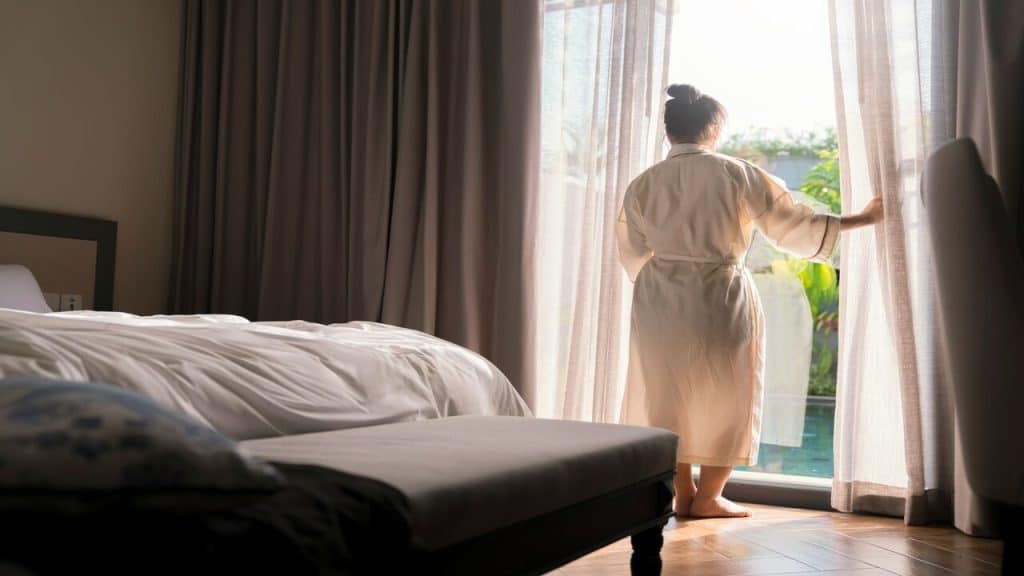
Stale air makes you sluggish. Fresh air, even just for ten minutes, resets your space. Crack the windows while you make coffee. Let the light in. Let the breeze move through. This one habit makes your home feel more alive–and gives your brain the oxygen and natural cues it craves.
3. Use One Signature Scent in the Evening
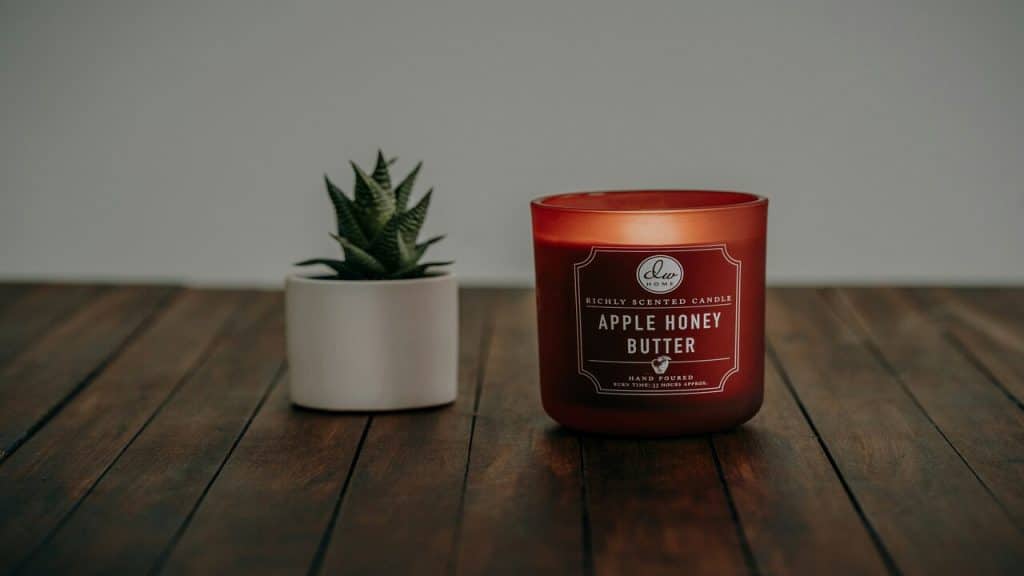
Scent is the fastest way to cue your brain that it’s time to wind down. Pick one specific fragrance–a lavender room spray, cedarwood oil in a diffuser, even a cozy candle–and make it part of your nighttime routine. Over time, just smelling it will start to bring your body into calm mode.
4. Keep a Clear Counter Policy
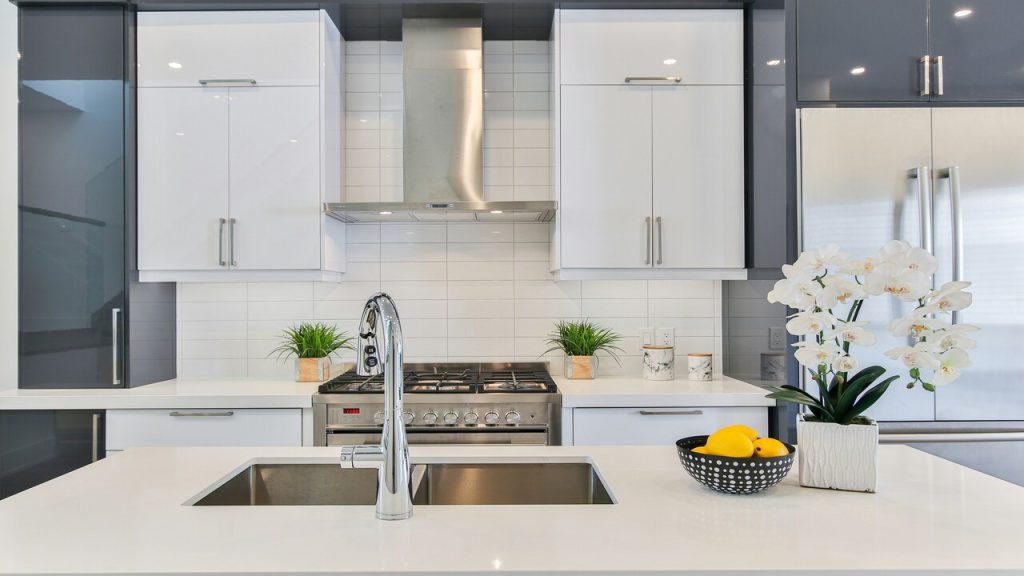
Clutter attracts stress like a magnet. And the kitchen counter is usually ground zero. Try this: nothing lives on the counters except the essentials. Wipe it down at the end of the day. That visual clarity gives your mind a place to rest–and it instantly makes your home feel less overwhelming.
5. Add a Lamp to Every Room
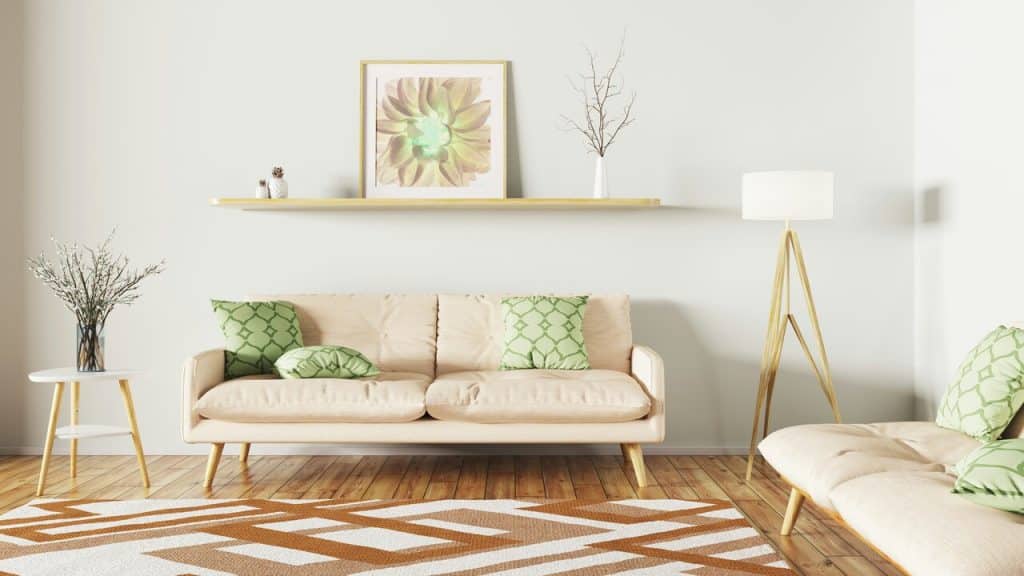
Overhead lights are harsh. Table and floor lamps, on the other hand, create warmth and softness. If your space feels tense at night, it might be the lighting. Add a soft bulb lamp to corners where you read, rest, or unwind–and turn off the ceiling light after dinner. It cues your brain to slow down.
6. Play Background Instrumentals Instead of TV
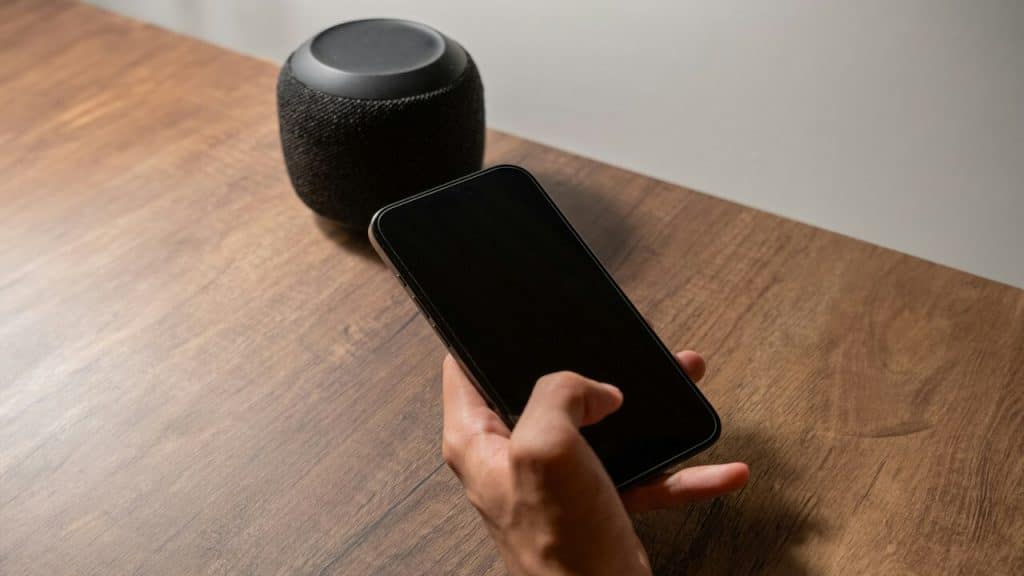
TV noise can feel like a companion, but it also ramps up mental chatter. Try soft instrumentals, nature sounds, or ambient playlists instead. Your nervous system notices the difference–even if you don’t at first. It creates space for your thoughts to land, instead of getting drowned out.
7. Use a Warm Towel Straight from the Dryer

This is a luxury-level reset, and it’s absurdly easy. Before your shower or bath, toss a towel in the dryer for five minutes. The warmth on your skin is grounding, soothing, and tactile. It’s a little sensory indulgence that brings you back to your body and out of your anxious head.
8. Do a Five-Minute Declutter Before Bed
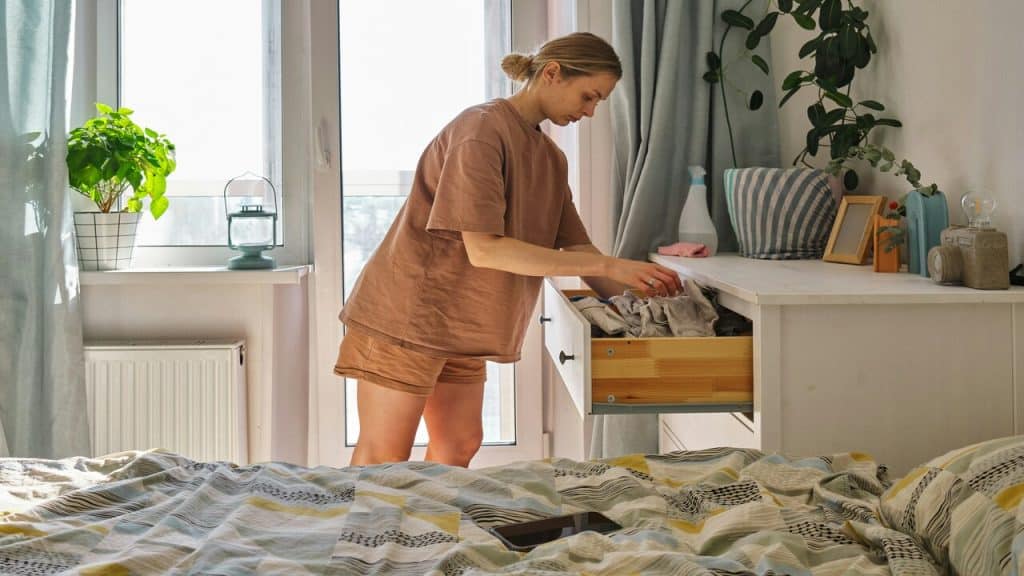
Forget perfection–just restore a little order. Set a timer for five minutes. Put away the items on the coffee table. Tuck in the throw blanket. Clear the kitchen sink. These small resets tell your brain that the day has been “closed,” so you’re not waking up to yesterday’s chaos.
9. Leave One Chair Completely Empty
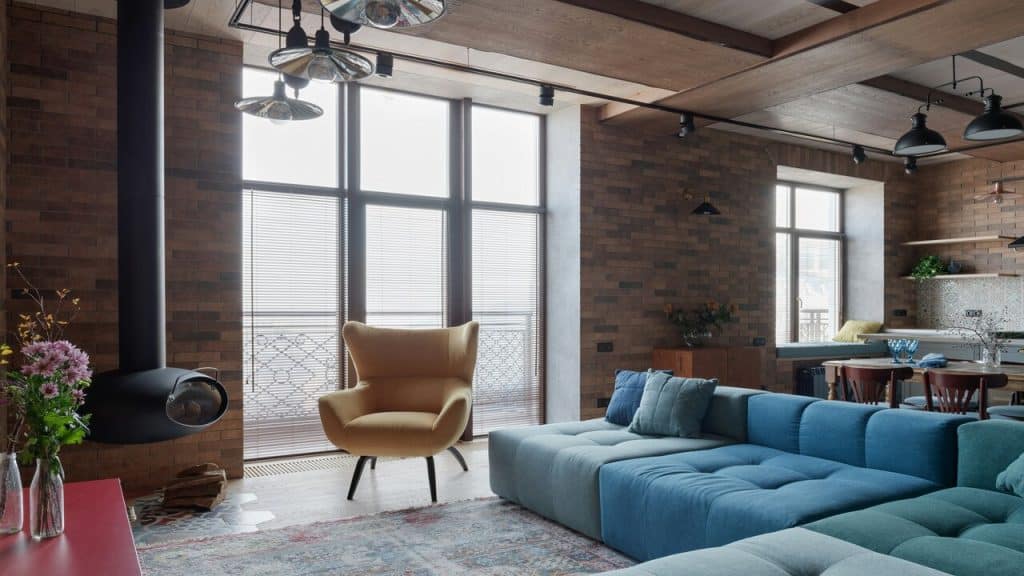
This sounds odd, but it works. Designate one chair–dining, accent, or office–that always stays clear. No jackets, no mail, no laundry. It becomes a visual cue of calm and possibility. It reminds you that space still exists in your world, even when life feels packed.
10. Drink Your Morning Beverage Without Your Phone
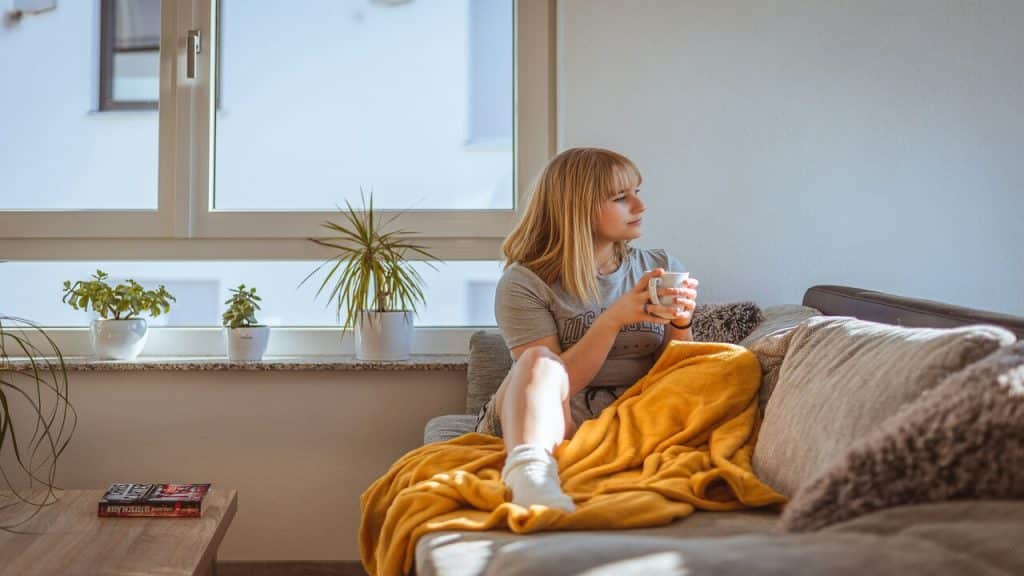
This isn’t about ditching tech completely–it’s about creating five minutes of digital-free peace. Whether it’s coffee, tea, or water with lemon, drink it quietly and with presence. Sit. Sip. Look out the window. The simplicity of it sets a grounded tone that carries through the rest of your day.
11. Add Plants–Even Just One or Two
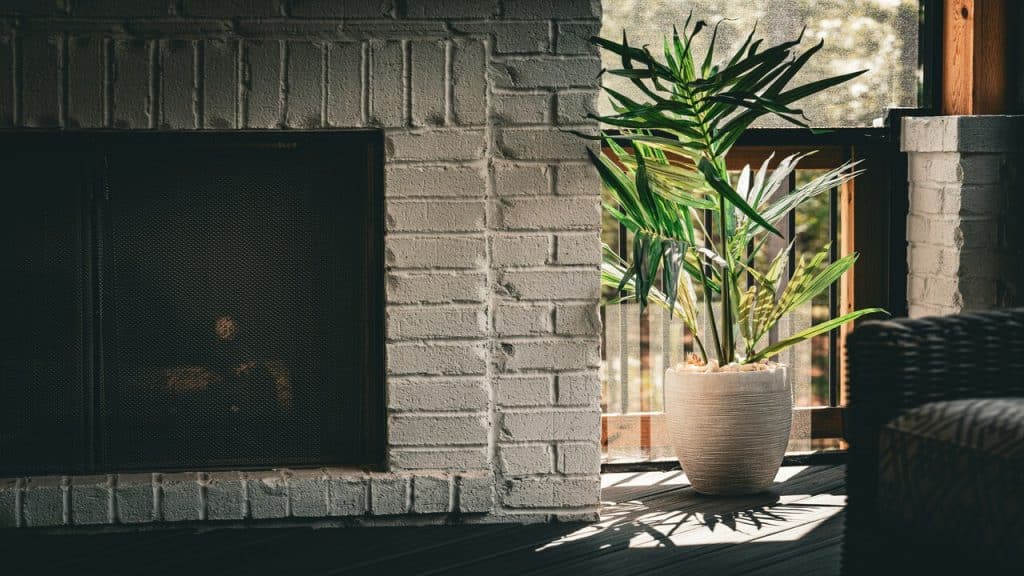
You don’t need a jungle, but a touch of green does wonders. Plants give your space movement, life, and a sense of care. Even a pothos in a corner or a snake plant on a shelf makes your environment feel more natural–and your mind more at ease.
12. Designate a “No Shoes” Area

Shoes track in more than dirt–they track in stress. Create a simple space near the entrance with a shoe rack or mat, and stick to a no-shoes rule inside. That small boundary helps shift your body from “outside world” mode into a more relaxed, home-based state.
13. Light a Candle at the Same Time Every Night
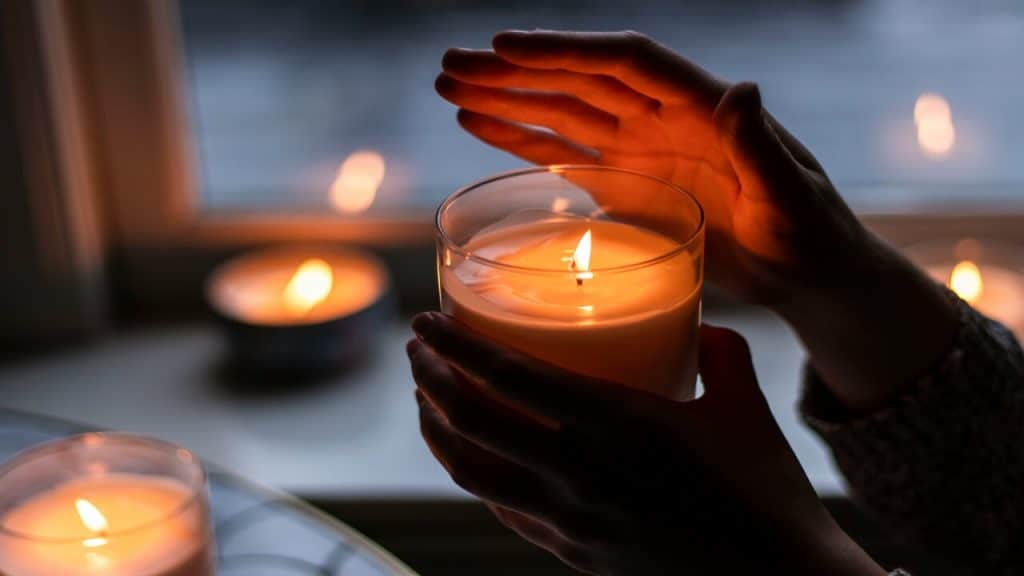
Rituals soothe the nervous system, and a candle is a great way to create one. Pick a consistent time–after dinner, post-shower, right before journaling–and let that soft flicker mark the beginning of your wind-down. Over time, your body will associate it with safety and rest.
14. Keep Your Nightstand Minimal
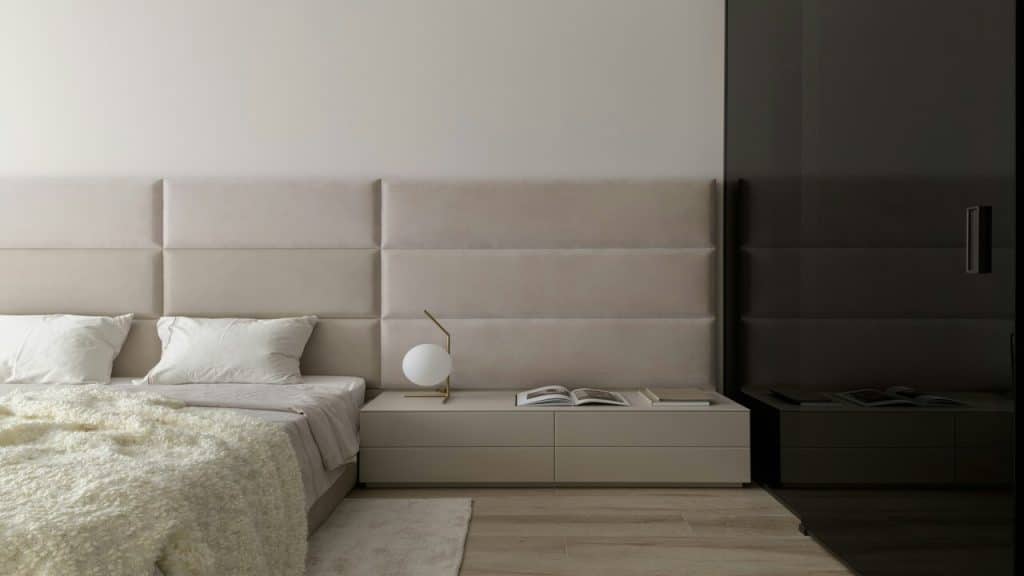
Your nightstand is the last thing you see before sleep and the first thing you see in the morning. Keep it simple. A book, a lamp, maybe hand cream or a water glass. Clearing the clutter here helps your brain disconnect from to-dos and settle into stillness.
15. Use a Weighted Blanket–Even for Just 15 Minutes

You don’t need to sleep with one all night. Just wrapping yourself in a weighted blanket while you read or scroll can lower your cortisol and slow your breathing. It gives your nervous system the same grounding sensation as a hug or deep touch–without needing anyone else.
16. Set Your Phone to Grayscale After 9PM

Colors on your screen are engineered to stimulate. Grayscale, on the other hand, makes your phone less visually addictive. Switching it after 9PM is a sneaky way to encourage less scrolling–and helps your eyes and brain ease into rest mode faster.
17. Keep a “Mental Load” Journal in the Kitchen
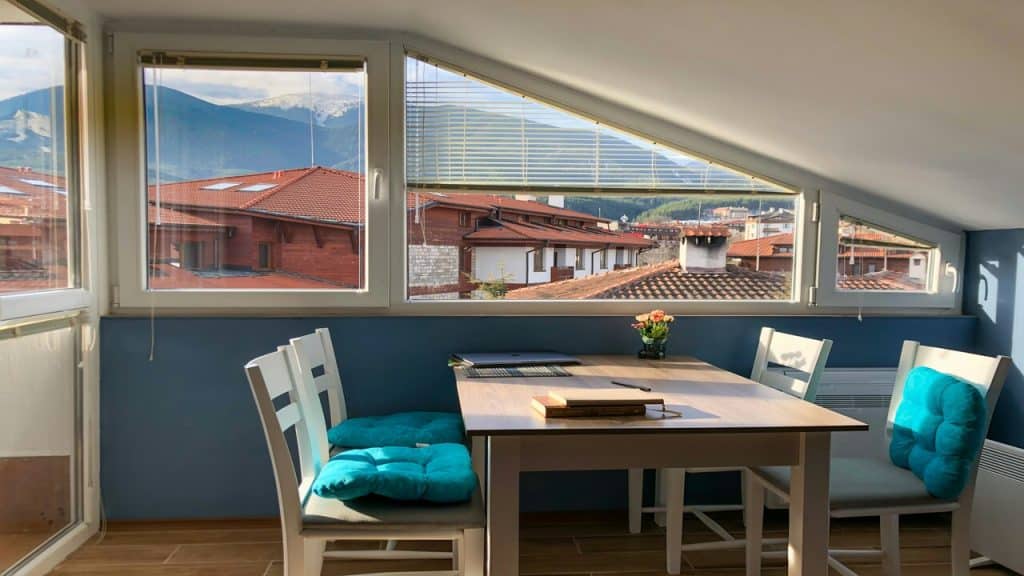
Stress piles up in the form of invisible tasks–things to remember, buy, clean, or fix. Keep a small notebook or magnetic pad in the kitchen where you brain-dump anything on your mind. Getting it out of your head and onto paper helps you mentally offload without feeling like you’re dropping the ball.






Ask Me Anything